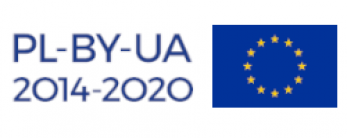The Cross-border Cooperation Programme Poland-Belarus-Ukraine for 15 years supports the cross-border development processes in the borderland of Poland, Belarus and Ukraine by co-funding diverse projects. All projects funded within the Programme are non profit ones and contribute to the improvement of quality of life of inhabitants of eastern Poland and western Ukraine and Belarus. Each undertaking financed within the Programme shall demonstrate strong cross-border effect, not only through established partnership between institutions from these three countries, but mainly thanks to the results of the activities and their positive impact on the border territory.
1st Programme edition was implemented in years 2004-2006. At that time, Programme structure and financing of projects were much more complicated than it is now (in Poland costs were covered by the European Regional Development Fund, while the Belarusian and Ukrainian sides used funds from the TACIS), nevertheless with the total EU financing of 45,8 M EUR, 167 projects developing the borderland were financed.
Within 2007-2013 edition Programme was implemented under the European Neighbourhood and Partnership Instrument (ENPI). Its financing from EU budget significantly increased up to over 170 M EUR and using that funds 117 projects were implemented. These were large infrastructure, regular and umbrella projects. They resulted in multiple improvements in such sectors and areas as social infrastructure, healthcare, education, tourism, protection of cultural heritage, security and last but not least border-crossings’ infrastructure and services.
In the programming period 2014-2020 the Programme operates under the framework of the European Neighbourhood Instrument (ENI). The ENI supports sustainable development along the EU’s external borders, helps reducing differences in living standards and addressing common challenges across these borders.
In terms of the budget, the Programme Poland-Belarus-Ukraine is the biggest ENI CBC programme at the EU land borders. Over 170 M EUR will be granted from the Programme to projects focusing especially on protection and promotion of cultural and natural heritage of border areas, infrastructural accessibility of the regions, improvement of border-crossings’ infrastructure, procedures and services as well as development of healthcare and public security services.
The Programme Strategy was adopted following the socio-economic analysis carried out at the request of the Managing Authority, in which the common national and regional priorities of the participating countries and their regions were identified. It is also based on the experience from the previous programming periods. The Programme Strategy takes also into account the opinions of the various stakeholders on the common needs and challenges the Programme area is facing. It finally reflects the decisions taken by the representatives of the Poland, Belarus and Ukraine in order to focus on the thematic areas in which the participating countries can address common problems and deal with the joint assets.
The ENI Cross-Border Cooperation Programme Poland-Belarus-Ukraine 2014-2020 is the document defining most important issues regarding the realisation of the Programme, its context, goals and functioning. It defines areas of interest which will be realised thanks to co-financed projects and which are represented by four Thematic Objectives and their priorities:
HERITAGE
Priority 1.1 Promotion of local culture and history
Priority 1.2 Promotion and conservation of natural heritage
AVAILABILITY
Priority 2.1. Improvement and development of transport services and infrastructure
Priority 2.2. Development of ICT infrastructure
SECURITY
Priority 3.1. Support for developing of health protection and social services
Priority 3.2. Tackling shared challenges relating to security
BORDERS
Priority 4.1. Support for border efficiency and security
Priority 4.2. Improvement of border management operations, customs and visa procedures
More information about the programme can be found at: https://www.pbu2020.eu/pl



